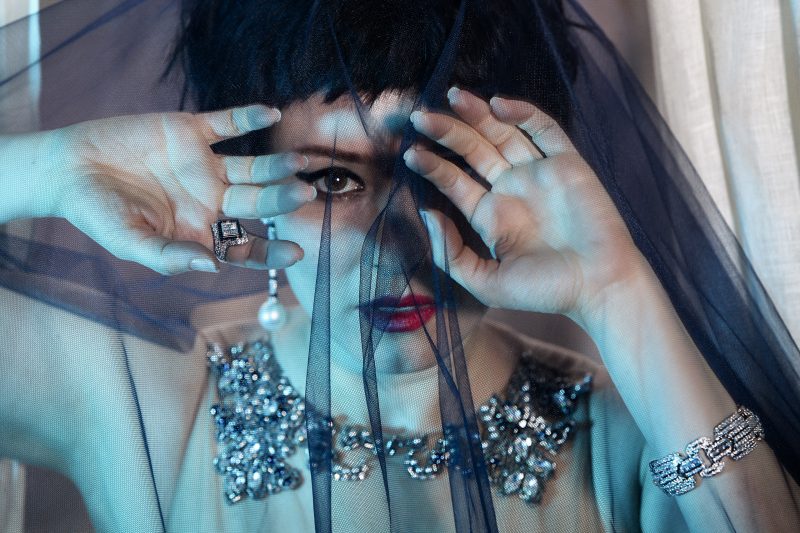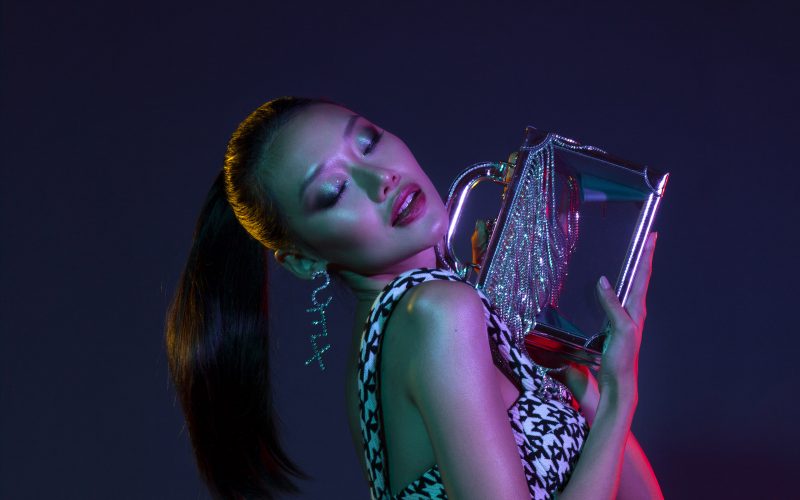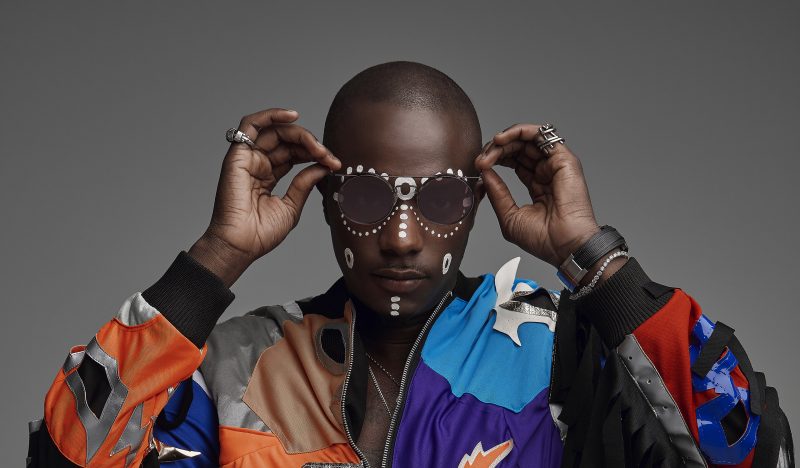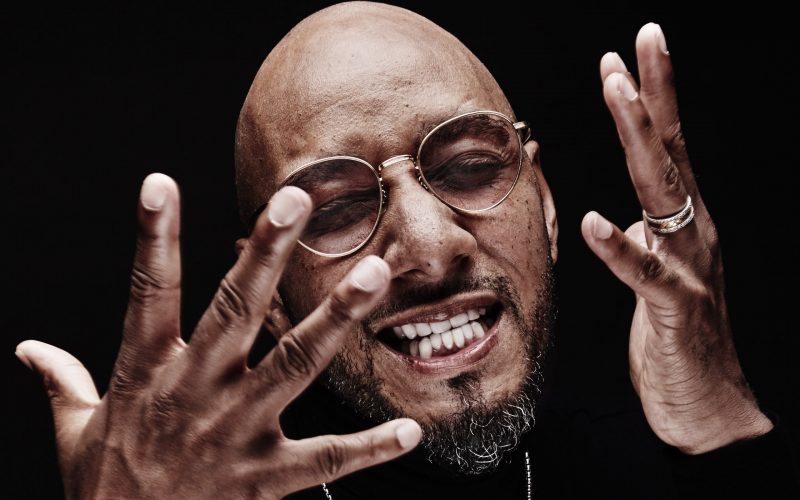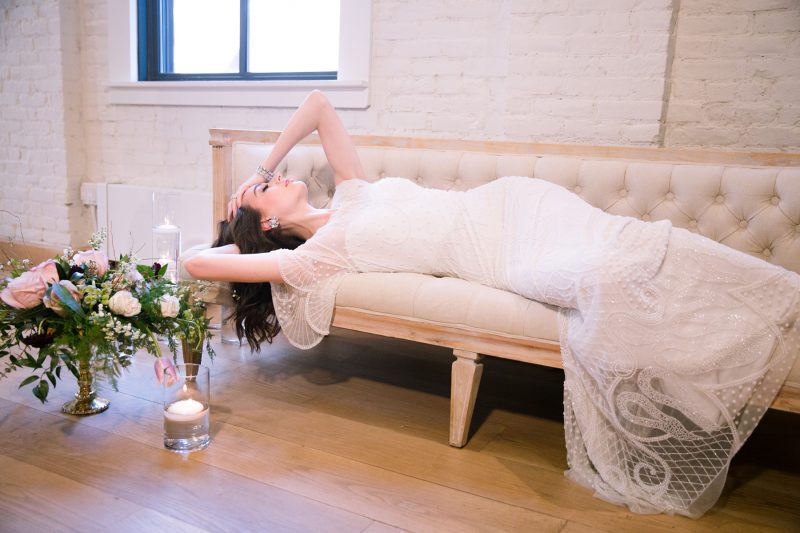High Anxiety and The Elephant Man reach comedic and dramatic extremes, so it came as a surprise to meet the thoughtfully humble man behind such classic films, a quiet mastermind who made these and other masterpieces possible. Producer STUART CORNFELD, a partner at Ben Stiller’s Red Hour Films, worked early in his career with such moguls as Mel Brooks and Anne Bancroft and later helped discover David Lynch, Guillermo Del Toro and Amy Heckerling among others. Not a bad career for someone who chose moviemaking as a last resort.
His childhood friend Eric Michelson thought it best that Spirit & Flesh meet him for an interview at someplace “weird” — an oceanfront Russian restaurant on Brighton Beach called Tatyana. In Stuart’s stripped-down former police car, we arrived in style to an excess of food and vodka flamboyant diners and a dance show, and were soon led into his magically dreamy and inspiring world.
What choices led to you becoming a producer?
I graduated from UC Berkeley as a psychology major and didn’t know what I wanted to do. I’d been very depressed and my girlfriend at the time said, “You’re a horrible person to live with. Figure out how much money you have and how long you can live on that, and go do whatever you’ve always wanted to do.” I went on a TV quiz show and was champion for three days, so I had $2,000 which would last about three months.
Actually, Eric Michelson was there when I did it. And his mother had a research library at the American Film Institute, so I volunteered there to work on a student film at the lowest level, as a production assistant. I’d always loved movies so I blasted past everybody and became the assistant director. Then their school accepted me as a student. So going on the game show, being friends with Eric, and my girlfriend saying, “Do what you’ve always wanted” — those were my “butterfly” moments.
Could any other options have led you in a different direction?
I was so depressed, I wasn’t thinking about anything. I just shouldn’t have gone to college. Certain people have a calling; a lot of writers I work with had a drive I never had. I just always liked movies, so I gave it a shot.
What steps did you take after graduating from the American Film Institute?
They had the film school and the Directing Workshop for Women. I worked on two projects with Anne Bancroft and she introduced me to her husband Mel Brooks, who asked me to call him when I got out of the AFI. So I did and he said he had me in mind for something and to call back in three months. I called in one month and he said, “Your calling is not going to catalyze a job nor a relationship. So don’t call anymore unless you’re changing your address.” I thought “Oh god” and didn’t know what to do. Then two months later he hired me to be his assistant on the first movie I worked on, High Anxiety. But he also had a secretary, so all I really did was hang around with him. We’d go to breakfast, talk about the script, hang out. I was very, very lucky. Then I encouraged Anne to write a screenplay based on a project we’d done at the AFI. I produced a half-hour videotape that she directed, and when a studio decided to make a movie version Mel said, “Stuart will produce, because he got it started.” So when I was twenty-seven I produced my first movie, Fatso. I’ve been doing that ever since.
What’s the role of a producer?
It’s different on each film. I spend a lot of time on the story and script development and I like to be around when the movie’s being made. I have a sense of the movie and collaborate with the director, who is sucked into 7,000 decisions every day. I can stand back and say, “By the way, we did want to make this movie this way, so….” I kind of sit on his shoulders.
Working with directors and writers, did you have a chance to discover talent?
I’ve worked with a lot of people early in their careers, like David Lynch, Guillermo del Toro, Amy Heckerling – people on their first or second movies.
What do you appreciate in a director?
Somebody who knows what story they’re telling, has something to say, and says it in a way that makes sense to the actors. You have to give actors guidance such that even while they’re in that moment, they get a sense of where they should go that was different from the last take. I’m astounded that Ben Stiller can act and direct. It’s hard. You have to be so in the moment to act, and so out of the moment to see the entirety of the film.
Ben prepares much more than any other director. When we finally get around to shooting, he wants already to have had the conversations with the cameraman and production designer – the technical stuff – so he can focus on the other actors and his performance.
How did you come to partner with Stiller?
I read a great script called What Makes Sammy Run that he’d written with a friend of mine, Jerry Stahl. We talked and saw things the same way, so we started working together without any kind of formal association. Then he asked me to run his production company, looking for and developing projects.
Do you find projects or are people pitching to you?
It’s both, and you try to have some input. You’ll hear an idea and then the specifics of the movie and say, “Maybe this or that can be changed” or “This is amazing.’” If you connect, you can help with it.
How do you balance the business and human elements, as when someone you like personally is pitching you?
I assume if I like something, other people will. I don’t get second-guess what somebody else would think. I like doing comedies I think are funny and horror movies that scare me. Sooner or later things get down to the truth: At a certain point you’re going to be forced to say it, so you might as well say it as early as possible. Under the worst of circumstances, if somebody says, “This scene should take place on the beach” and I say, “It really should take place in an apartment building,” we have the conversation. And if we disagree, we disagree. It’s like the rest of life. You can hide your reaction or point of view, but it always comes out.
How would you define yourself in just a few lines?
I think I’m probably funnier than most people. I’ve been lucky to make a living in a creative art form. But the more invested you are in something, the more you can potentially be hurt, or angry, which may or may not be a good thing. My take on me and on making movies: “The only thing worse than doing it is not doing it.”
A movie is the product of many visionaries working together. Being surrounded by such people must be enriching.
Yes, absolutely! That’s the best part. I always wanted to spend my life around interesting people and I’ve spent my entire professional life around the funniest people on earth. The point of my job is, “Can you come up with something to make people laugh?”
The Elephant Man wasn’t much of a comedy.
It wasn’t? [laughs] No, that was all about David Lynch. I thought Eraserhead was amazing and just wanted to see his next movie, whatever it was. He was such a singular artist with an incredible vision. Plus, he can deliver “dream time”: have a moment play like it’s in real life but it’s really more like a dream. He’s incredible.
What happened when you found out you’d be working with him?
We tried to make a movie called Ronnie Rocket but it was too weird. Then I found the script to The Elephant Man and we couldn’t set it up. Then Mel Brooks read and set it up. I was the executive producer and worked on the script and brought in Lynch. When they went to shoot in England, Mel wanted me in the States to work on History of the World, Part I, so Jonathan Sanger, who originally had the Elephant Man script, produced the movie. I was just happy it was gonna get made.
Of course there is a business side in making of a commercial movie.
When you work with financial limitations, giving birth to something – that’s horrible!
It’s painful, it’s disgusting.
Did you ever see Jean Cocteau’s Le Testament d’Orphée? He plays himself and the Fates pull him up into heaven and say, “You’re forcing time to repeat itself in the movies you’re making, and sentencing the characters to an endless loop of repeating the same actions. What you’re doing is God’s work.” Then they call up his characters to testify against him. Cocteau is like, “I’m sorry, I didn’t know.” The Fates say, “Okay, we understand that you didn’t know what you were doing, so we’re not going to destroy your immortal soul. But no more movies.” And that was the last movie he did.
So the point is, the Fates say the world doesn’t need movies. When you’re making a movie, you’re pushing something out that the universe isn’t necessarily sucking out – unless it a sequel. No one is saying, “Oh please, we need this.” Everything is against you: the weather, getting the right actors. It’s the same with starting anything new: “Why am I working so hard on something that doesn’t exist? Why can’t I just do the fun part and create it? Why am I having to push?” It’s gross!
You must do it for that moment of creation…
You know, I don’t know. It’s my life, so how could I possibly have a clear perspective on it? [laughs]
What would happen if you said, “I’ve done everything I wanted to do”? What would happen next?
When I was younger I could never stand to be alone, and now for the first time in my life I like solitude, being apart from everything. I’m sure I’d volunteer to work on something that had no financial remuneration. I’m also very much like my father, who was endlessly interested in meeting and talking to people. If I were to do something else, I’d just do documentaries.
I love your idea for the documentary about people who come to America for a better life and discover they have to sacrifice their lives for their children. No one’s ever spelled that out.
I know! It’s an incredibly moving story. I’ll tell you, I always thought of that as a fictional film but now that you said it’s a documentary, that’s it. Nobody’s done that documentary.
Can you separate your professional self from your moviegoer self?
Of course. How great is The Wizard of Oz? When I see something where I’m like, “Wow, this is really good,” then I don’t bother with, “Oh, they must have done this, they must have done that.” It’s such a crazy art form.
Why is it crazy?
It’s like a dream. It’s in a different time, space. The faces are twelve feet high and then they’re not. And it happens in the dark. It’s got a flicker. The whole thing is surreal. It’s closer than anything else to dreams. People fall in love with movies so they can live that dream for a short while. I love a good movie!


